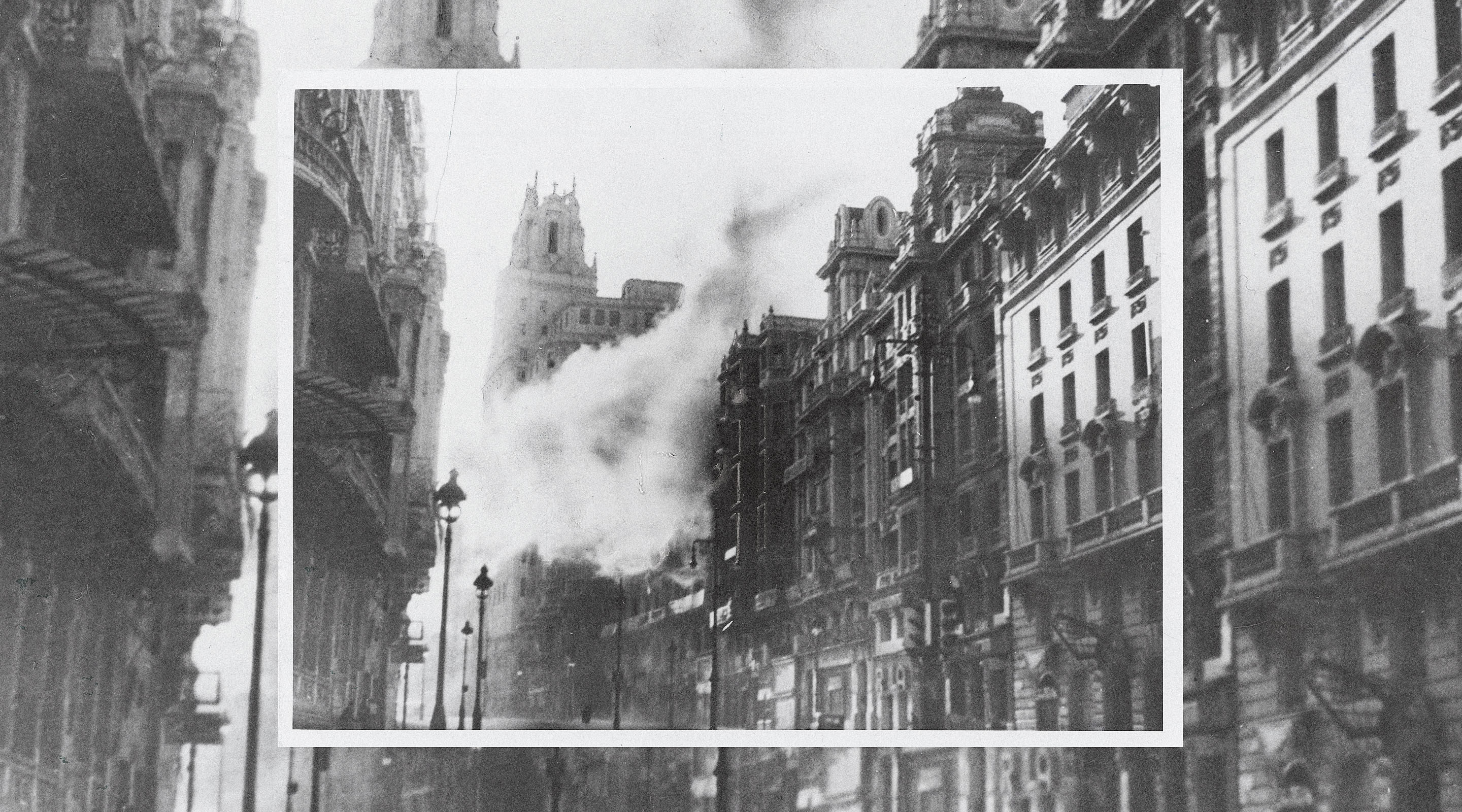
1936
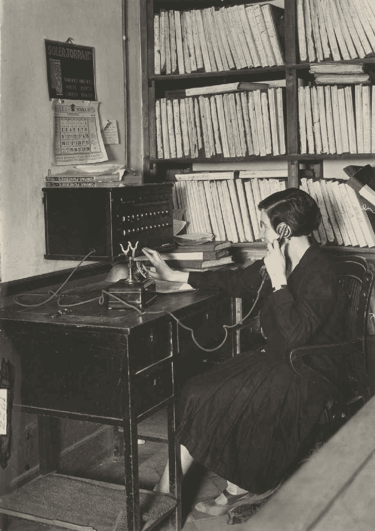
The first of three very hard years of civil strife forced the CTNE to split up its network and convert its Gran Vía headquarters into a refuge and correspondent's office for foreign reporters.
The Civil War breaks out: Five delegations and neutrality
01
With little more than a decade of existence as a company, CTNE, like the rest of the country, faces the outbreak of the Spanish Civil War and the three years of terror and paralysis that came with it. The president, Estanislao de Urquijo y Ussía, tried at all times to preserve the service as far as possible, and reorganised the company into five delegations. Three in the so-called national zone - Tenerife, Seville and Valladolid - and two in the republican zone - Madrid and Barcelona. All the US delegates that ITT still had in Spain had their work permits withdrawn, despite which CTNE tried to stay out of political issues and continue with the business, albeit at a minimum. Thanks to the telephone operators and technicians, the switching centres continued to operate and intercity and international traffic allowed some communications to be maintained during the war. The company's economic activity ceased to be reported annually until 1940.
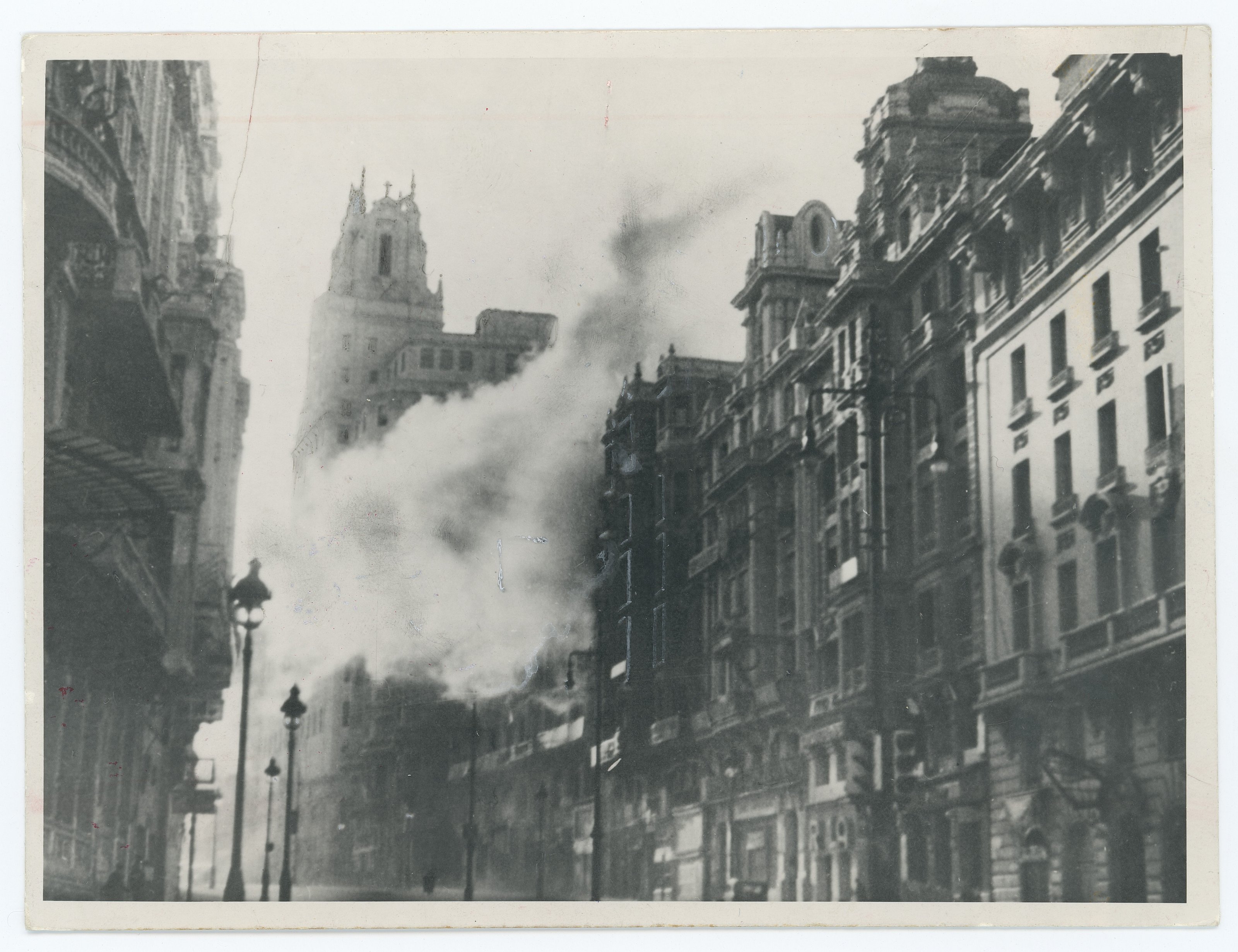
Gran Vía, the building that is always there
02
From sheltering refugees to hosting the foreign press covering the war, and all this while still serving as a telephone exchange. The Gran Vía building, the headquarters of the CTNE since a few years earlier, once again demonstrates its unique character during the Civil War. Situated at the top of the so-called Red de San Luis, Gran Vía 28 received shells, sheltered innocents (more than 2,000 refugees barricaded themselves in the basement) and sheltered the war chronicles of the best correspondents, among them historical figures such as Hemingway and John Dos Passos.
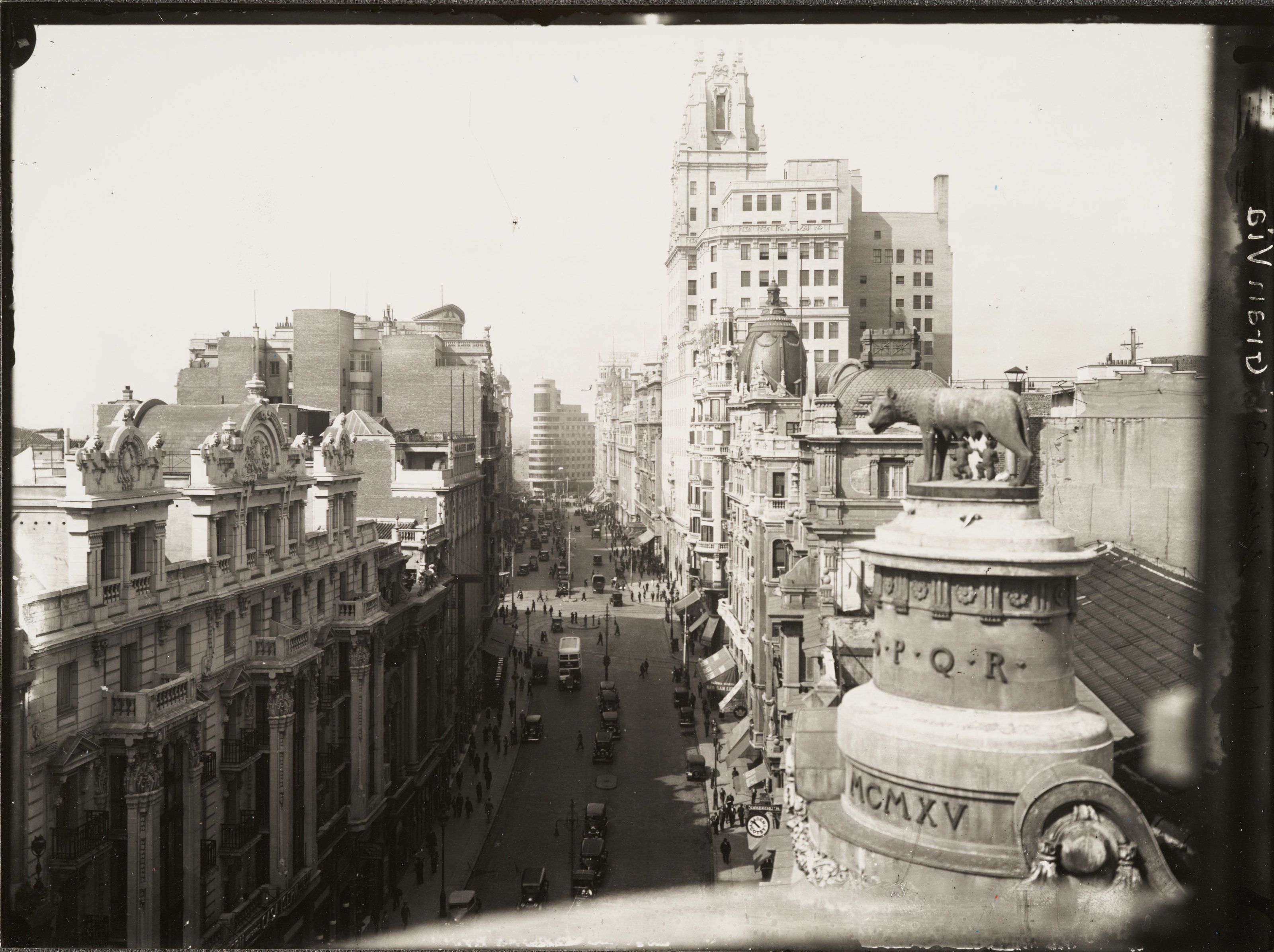
The number of lines decreases
03
The Civil War logically brought CTNE's business to an almost complete standstill. This was not the time for new registrations or for growth in the number of lines. In some areas the business held up, but in many others there was even a decrease in the number of active telephones. In the three years of the war, more than 80,000 lines were lost.
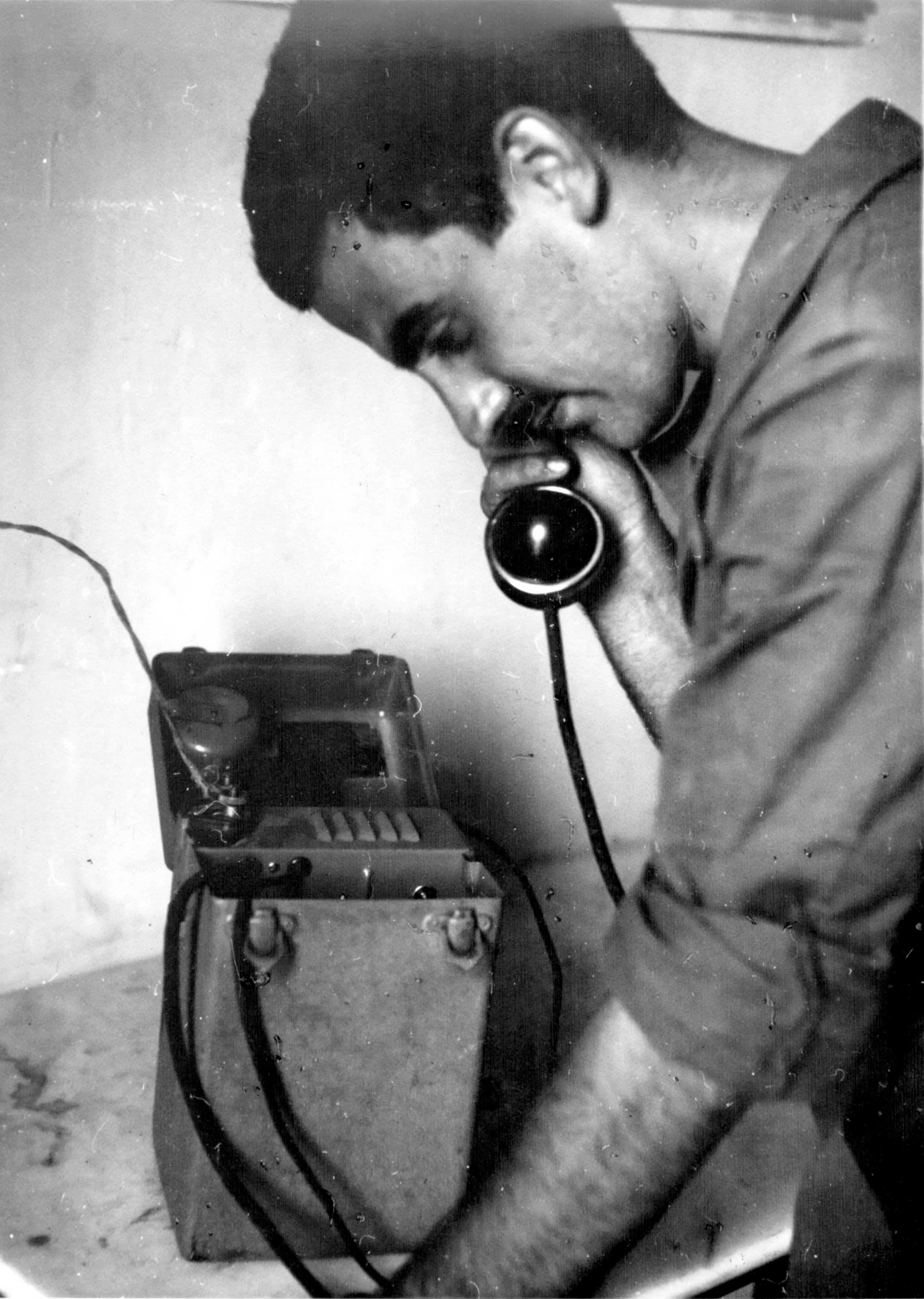
Do you have doubts about what happened?
Ask Aura